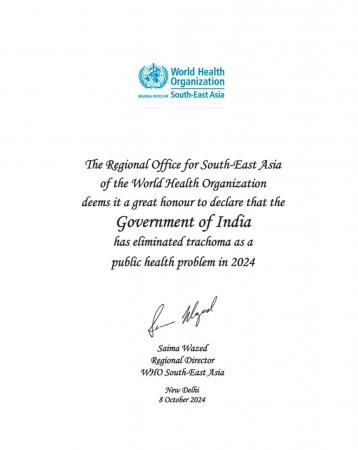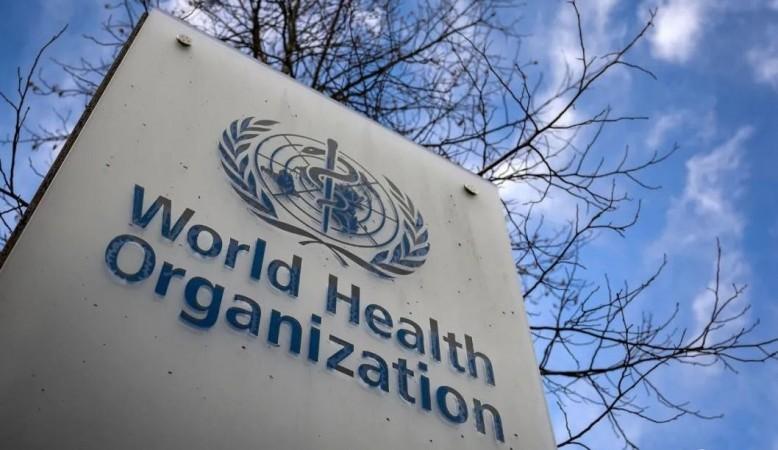
India has been recognized by the World Health Organization (WHO) for a significant public health achievement - the elimination of trachoma, a bacterial eye infection that can lead to irreversible blindness. This commendation, made on October 8, 2024, marks a milestone in India's public health history. Trachoma, a neglected tropical disease, is caused by the Chlamydia trachomatis bacterium. If left untreated, the disease can result in irreversible blindness. The disease is particularly painful, causing blurry vision, red and swollen eyes, and pain while blinking or sleeping.
India's achievement is particularly noteworthy as it is the fourth country in Southeast Asia, after Nepal, Myanmar, and Pakistan to eliminate trachoma. The WHO's Regional Office for South-East Asia declared, The Government of India has eliminated trachoma as a public health problem in 2024. This recognition is a testament to the strong leadership of the Indian Government and the commitment of ophthalmologists and other healthcare workers. The elimination of trachoma in India is the result of a comprehensive approach that included effective surveillance, diagnosis, and management of active trachoma, provision of surgical services for trichiasis, and promotion of water, sanitation, and hygiene, particularly facial cleanliness, among communities.

India's journey towards the elimination of trachoma has been a long one. The country was known to be trachoma endemic in the 1950s and 1960s. However, there is no recent evidence on the magnitude of trachoma and related blindness in India, as per the Health Ministry survey. The Union government had declared the country free from infective trachoma and active trachoma in children. The findings of the National Trachoma Prevalence Surveys and Trachoma Rapid Assessment Surveys conducted from 2014 to 2017 showed that the overall prevalence of active trachoma was 0.7 per cent.
In 2023, AIIMS initiated a study in collaboration with the global health body to determine existing trachoma cases in Northern India. In its initial study, AIIMS noted the prevalence of trachoma to be around 3.5 per cent. According to WHO, the prevalence of trachoma should be less than 5 per cent to mark it as eliminated. The elimination of trachoma is part of the 2021–2030 neglected tropical disease roadmap by the WHO which targets the prevention, control elimination, and eradication of 20 diseases and disease groups by 2030. This roadmap is a comprehensive approach to reducing transmission of the causative organism, clearing existing infections, and dealing with their effects.
The felicitation ceremony was held at the 'Public Health Awards' event during the Seventy Seventh Regional Committee Session in the national capital. The Regional Director, Saima Wazed, presented a plaque and a citation to India for this achievement. The event also recognized other significant health achievements in the region. Bhutan was felicitated for achieving interim targets for cervical cancer elimination; Timor-Leste for eliminating lymphatic filariasis; Maldives and Sri Lanka for Hepatitis B control in children; and six countries for achieving SDG and global targets for reducing under-five mortality and stillbirth rates.















